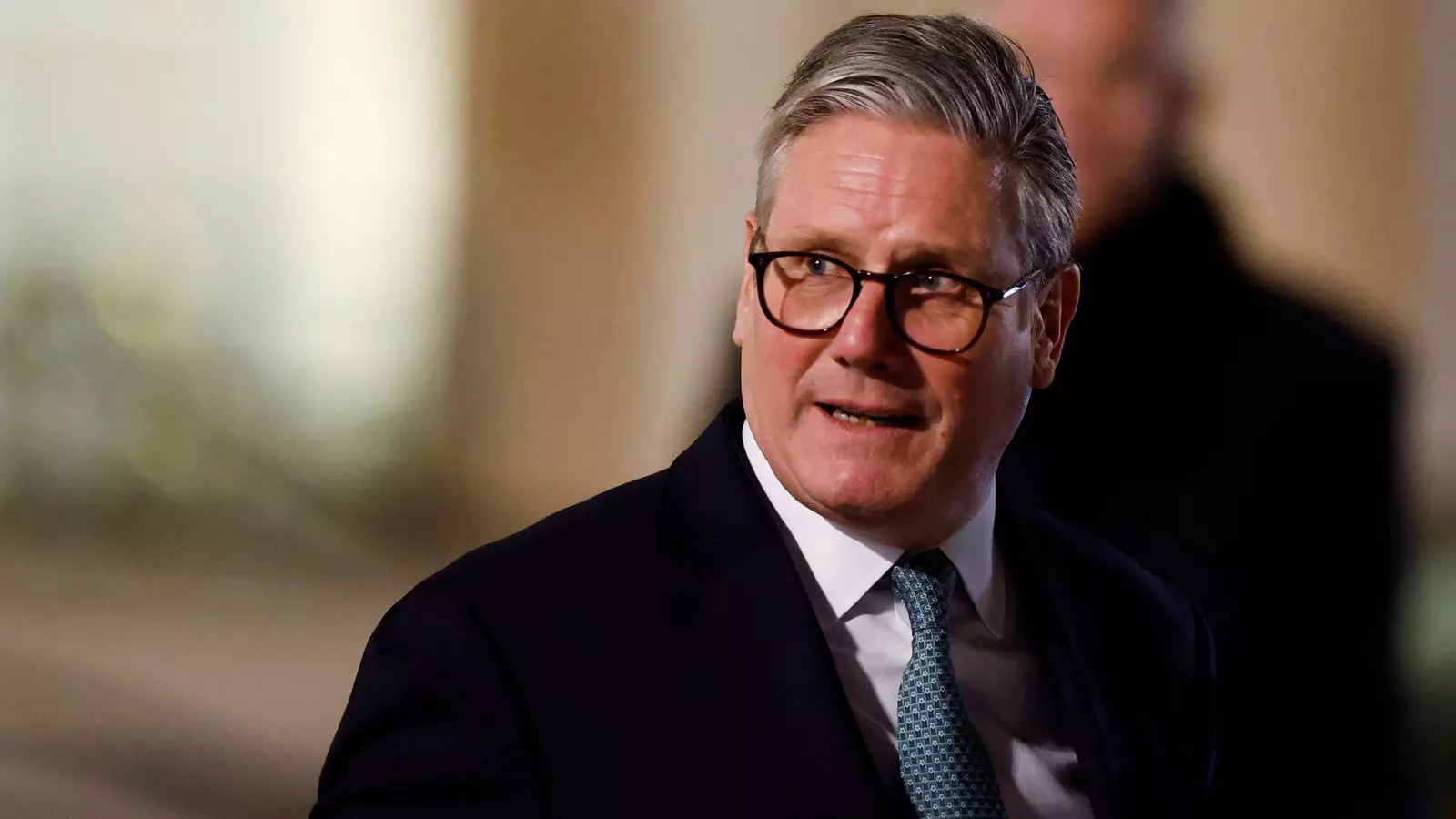The ongoing conflict in Ukraine, ignited by Russia’s aggressive invasion, has prompted discussions about the future of the region and the role of international powers in ensuring lasting peace. With significant political figures like Sir Keir Starmer addressing these issues, the dialogue surrounding support for Ukraine and the implications of US-Europe relations has become increasingly urgent. Sir Keir’s recent remarks concerning the security guarantees for Ukraine—and the broader international response to the conflict—illustrate the importance of coherent strategy in navigating the treacherous waters of geopolitical negotiations.
At the forefront of Sir Keir’s statements is the assertion that a “bad peace deal would be a disaster for everyone.” This sentiment echoes a growing concern among political leaders regarding the potential consequences of a rushed or inadequately framed agreement with Russia. Historical precedents remind us that superficial resolutions can lead to renewed hostilities; thus, it is crucial that any peace settlement effectively neutralizes the threat posed by Russian aggression. Sir Keir’s emphasis on Ukraine’s involvement in discussions about its future is imperative; a peace process lacking Ukrainian representation is fundamentally flawed. Ukraine’s sovereignty must remain central to any dialogue, ensuring that its voice is heard in determining the terms of its security and territorial integrity.
Sir Keir’s call for strong security guarantees underscores a strategic necessity: any agreement must not only aim to halt immediate fighting but also establish mechanisms that deter future aggression. A peace that leaves Ukraine vulnerable to potential future attacks would serve neither Ukraine nor its allies well. To achieve a lasting peace, US involvement and commitment are essential, particularly in the form of military aid; this includes bolstering Ukraine’s air defense systems and ensuring collective security through NATO frameworks. Without such assurances, the region remains precarious.
The meeting between Sir Keir and President Trump is emblematic of the current geopolitical dynamics. On one hand, there is a need for collaboration between the US and European nations to forge a robust response to Russian actions; on the other hand, differing opinions on how best to approach this complex interplay can hamper progress. Trump’s recent derogatory comments regarding Ukrainian President Volodymyr Zelenskyy reflect an alarming trend that could complicate diplomatic relations. Such rhetoric not only undermines Ukrainian leadership but also has the potential to fracture the coalition of nations advocating for Ukraine’s sovereignty and resilience.
In this context, the UK must elevate its defense posture. Sir Keir’s stance on increasing defense spending is not merely a matter of economic allocation; it represents a strategic pivot in reinforcing the UK’s commitment to global security and NATO. As European nations face pressures to contribute more significantly to their collective defense, this is a timely initiative. The proposed increase to 2.5% of GDP could also serve to enhance the UK’s role within NATO, enabling greater involvement in future military frameworks and crisis response initiatives.
The implications of failing to act decisively in support of Ukraine are dire. With key political figures advocating a proactive approach, inaction could lead not only to a prolonged conflict but also to an emboldened Russia, which would view weakness as an opening for further territorial expansion. As Foreign Secretary David Lammy prepares to unveil new sanctions against Russia, it is a reminder that diplomatic tools must go hand in hand with economic measures to exert pressure on those who threaten peace.
Furthermore, the need for unity among NATO allies cannot be overstated. As Sir Keir and other leaders openly express solidarity with Zelenskyy as a democratically elected leader, it creates a narrative of collective resilience against authoritarianism, which is essential in today’s geopolitical climate. The stakes are high; establishing a secure and peaceful Europe is not just a moral obligation but a strategic necessity for democratic nations.
The path toward a stable and peaceful Ukraine requires commitment, strategy, and strong alliances. Political leaders like Sir Keir Starmer underscore that the only way to achieve a long-lasting resolution is through resolute actions that provide security guarantees, enhance defense expenditures, and ensure that Ukraine remains at the center of discussions about its future. The time for unified and decisive action is now; the longer the world waits, the more precarious the situation becomes for Ukraine and the broader European security landscape.


Leave a Reply